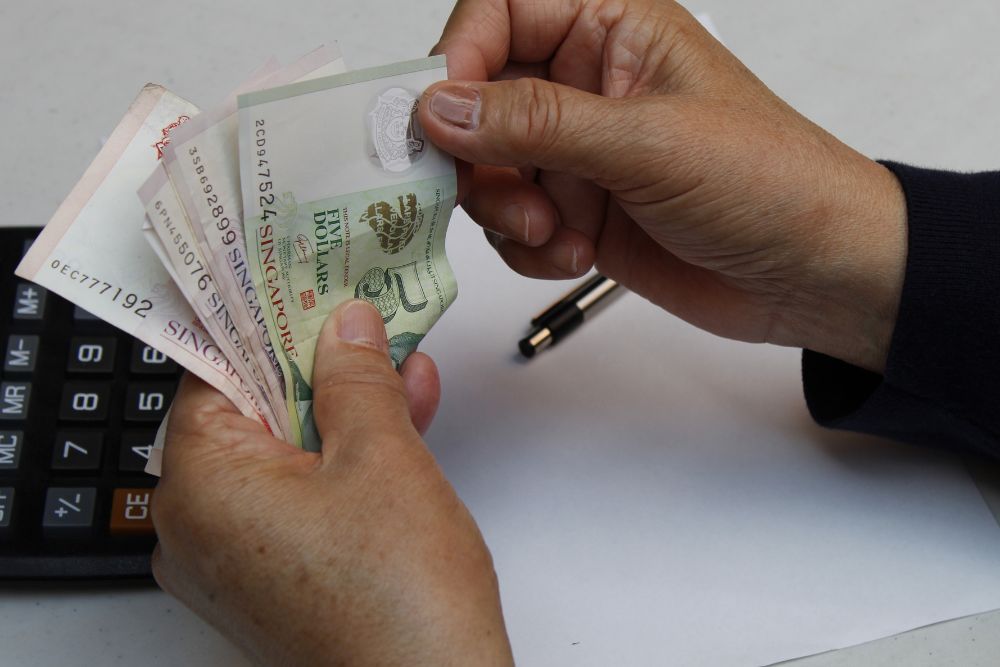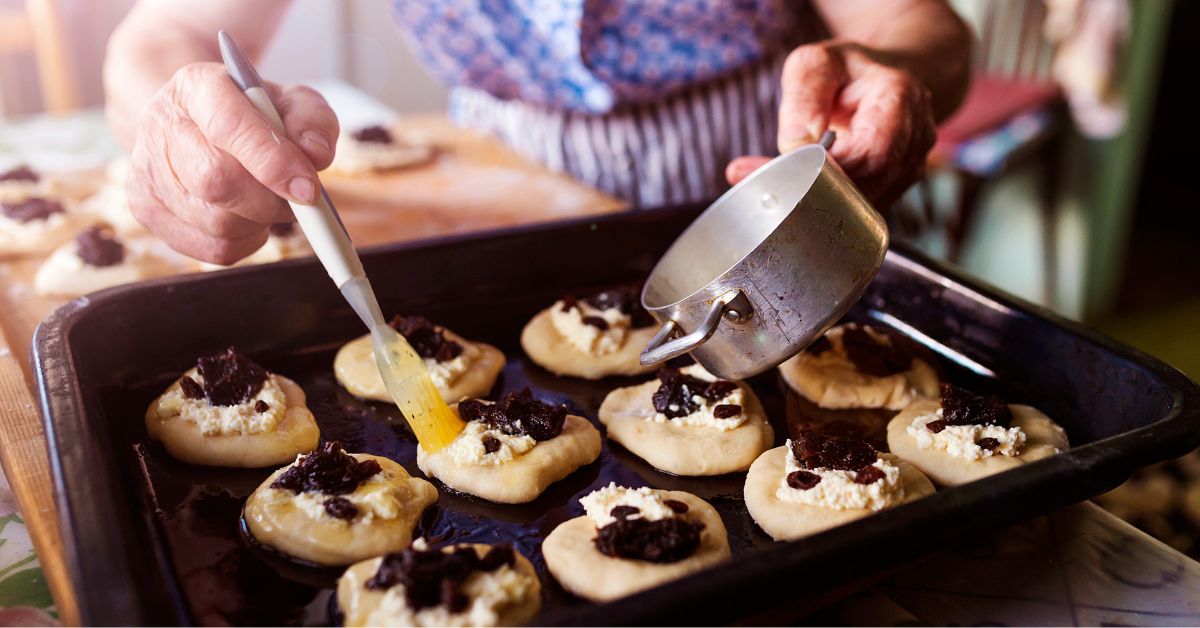
Dear silvers,
When the end of the month draws near, I tremble. Not because my salary is about to be credited – that is always a happy thing – nor the fact that I’m going to have to give my now-retired parents their monthly allowance – it’s all part of filial piety – but because I must fork it out in cash.
One of the greatest modern conveniences is cashless living. If you ask me, searching for, queueing up and cashing out at an ATM is an artefact of a bygone age.
But my parents insist on receiving their dole in paper, so I comply dutifully – sometimes begrudgingly, and very often tardily, but dutifully – as that’s what they’ve told me filial piety looks like.
If you’re going to give us money, it has to be in the way we want,
they say.
Now, this isn’t so much to discuss the inner workings of this zillennial writer’s family – though it’s always fun to explore eccentricities like your parents’ hoarding tendencies – but to ponder the nebulous ethic of filial piety, and how its expression might differ in Singapore circa 2024.
Advertisement
What does filial piety actually mean?
Filial piety, and its aforementioned demonstration via a monthly allowance, came under scrutiny last year from two of Singapore’s major newspapers. Our national broadsheet even commissioned a survey which asked 1,000 Gen Z-ers, millennials and Gen X-ers on the subject.
They found that the vast majority – about three in four people – gave a regular sum to their parents, with half of those who give fronting $300 to $500 a month on average. For those who prefer to work with percentages, half of the givers said they yielded between 10 –20% of their salary to their parents.
The top reason for all generations surveyed was, unanimously, filial piety. Unfortunately, I couldn’t find a working definition of filial piety as laid out in the survey – so I asked a loveless, parentless natural language processing model instead.
Filial piety is a concept rooted in Confucian philosophy and refers to the respect, loyalty, and devotion that children owe to their parents, elders, and ancestors,
replies ChatGPT.
To twist the knife further – let’s hope that an AI uprising isn’t on the horizon – I asked it to think of what filial piety would look like, if it actually, you know, had parents. (I’m sure Sam Altman doesn’t count.)
It says it would provide emotional and practical support to its fictional parents, respect their wisdom and experience, maintain family traditions, express appreciation and ensure their legacy is remembered.

Though there’s greater nuance to be found in real-life examples of filial piety in action, the language processing model’s reply generally corroborated with the expectations of several Singaporean parents and children I interviewed.
Supporting modern silver parents
What may be considered ‘traditional’ in one society at one time in history might not be the same in another, as filial piety adapts alongside shifts in family structures, societal values, and economic conditions.
In any case, associate professor at the Nanyang Technology University (NTU)'s School of Social Sciences, Setoh Peipei, notes that such norms may not necessarily apply across the board:
As societies modernise or face new challenges, expectations around filial piety can shift, meaning that what was once considered a timeless or universal practice may evolve to reflect contemporary values and realities.
She adds,
In Singapore, the median monthly household income from work last year was $10,869, up from just $4,000 at the start of the millennium. Naturally, this shifting reality gives way to new expectations in terms of filial piety, such as the provision of financial support.
Silvers interviewed generally regarded themselves as in a better financial position compared to their children. Hence, they don’t insist on a monthly allowance.
I don’t feel like we need to get a monthly allowance. We have enough for ourselves, and they will have a lot of their own things to spend on soon.
Victor Wan, a 69-year-old retiree, says,
However, he has since accepted an allowance from his children, figuring that it was their way of expressing appreciation.
Whether monthly or not, isn't so important. Sometimes small things like paying for a meal when they get their bonus or giving us ang pow during Chinese New Year – as parents, that will make us very happy,
he adds.
There's no need, but maybe a small amount, or paying for our utility bill like my son is doing, that’s okay.
Charlene See, 56, who works part-time as a clerk, agrees,
On the flip side, younger millennials generally feel that giving a token sum to their parents is the proper thing to do. Youth worker Colin Gan, 28, and engineer Darren Teo, 29, both previously volunteered to give their parents an allowance, though both offers were declined. Instead, they pay for meals when dining out together and hope to eventually fund family trips overseas.
As for account manager Celene Wan, Victor’s 29-year-old daughter, she references a Mandarin idiom that means “When you drink water, think of its source”.
It was a value instilled in us since our primary school days – it was our school motto – so I view filial piety as remembering our roots and giving back, taking care of our parents like how they did for us.
She says,
Therefore, she says that supporting one’s parents financially is “very essential and foundational” in her understanding of filial piety, though she also says that spending quality time together and carrying forward their values is also important.
For me, I see their values as a way of carrying a part of them with me when they are gone. Living an honest life, getting along harmoniously with the family, or nurturing a future generation that they can be proud of is something I consider part of filial piety,
she adds.
Chan Wai Kit, the son of Charlene, concurs.
I would help to financially support my parents more if they needed it. I’ve got the privilege of my parents being financially capable themselves, so I feel physical meetings and connecting on a deeper level is a better way to show filial piety.
The 29-year-old banking analyst says,
Living together

While household incomes soared, the size of the household has also plummeted. There’s an average of 3.09 members per household in 2023, compared to 3.7 back in 2000.
While three-generation families were once a common enough arrangement, this is no longer expected or even desired by most people interviewed. Instead, they’d rather live close by, for just enough separation to keep things civil.
I wouldn't want to stay together. Your kids have their own lifestyle and family to take care of.
Charlene, says,
I feel like it's best not to stay together as there is bound to be friction when living together. A good compromise is living close to each other where it is easy to meet, and in case of emergencies.
Her son Wai Kit agrees, adding,
These attitudes shift slightly when it comes to elderly parents who require a greater level of care.
In the future, filial piety would probably look like having them move into my place so I can help physically take care of them. To me, that’s part of the emotional aspect of giving back to our parents.
Colin says,
He’d generally prefer outsourcing care during the workday to helpers or senior daycare centres, before turning to assisted living facilities and nursing homes, as these still carry “a certain stigma” and simply “aren’t as comfortable compared to home”.
Having a domestic helper to help ensure the safety of our parents isn't so much outsourcing as it is creating peace of mind. I would also consider daycare centres before old folks’ homes, but I don’t think that it's unfilial to send your parents there either – it all depends on the situation and who can provide the best care for them.
Darren concurs,
Filial piety more than just monthly allowance

At the Active Ageing Festival organised by social enterprise Ageing Asia in late September, its founder and managing director Janice Chia questioned the traditional Asian emphasis on xiao (孝, the Mandarin word referring to filial piety ), before urging silvers present to instead replace it with its homonym, xiao (笑), meaning laughter.
In other words, she envisioned a form of filial piety that’s independent rather than dependent, where seniors are empowered to thrive and age with purpose instead of necessarily receiving care from the younger generation.
Depending on families and individuals, that could range from encouraging them to try new things and meet new people – perhaps at one of SilverStreak Social’s upcoming community events – to the age-old traditions parroted by ChatGPT, including the provision of that all-important kopi money.
What’s important, it seems, is to ensure that both parent and child are expressing and receiving filial piety in a way that supports their expectations.
Our lab envisions that fostering alignment between parents’ filial expectations and children’s filial behaviours may be beneficial.
Dr Setoh says,
There may be detrimental effects on parents' well-being if children's filial behaviours, even if well-intentioned, are misaligned with parents' needs and wants.
Referencing a study conducted by her colleague Dr Shannon Ang, an assistant professor of sociology at NTU, Dr Setoh elaborates,
In light of shifting perspectives on filial piety, we believe that expressions of gratitude and affection may play a central role in sustaining positive parent-child relationships and promoting family well-being. However, further research is needed to substantiate this idea,
she adds.
As for me, I’ve come to recognise that this monthly allowance is less a financial expression of filial piety, and rather an emotional one. What my parents probably value most is a tangible reminder that their adult son is grateful for their sacrifices – which is why they’d rather get a wad of cash than a soulless bank transfer.






